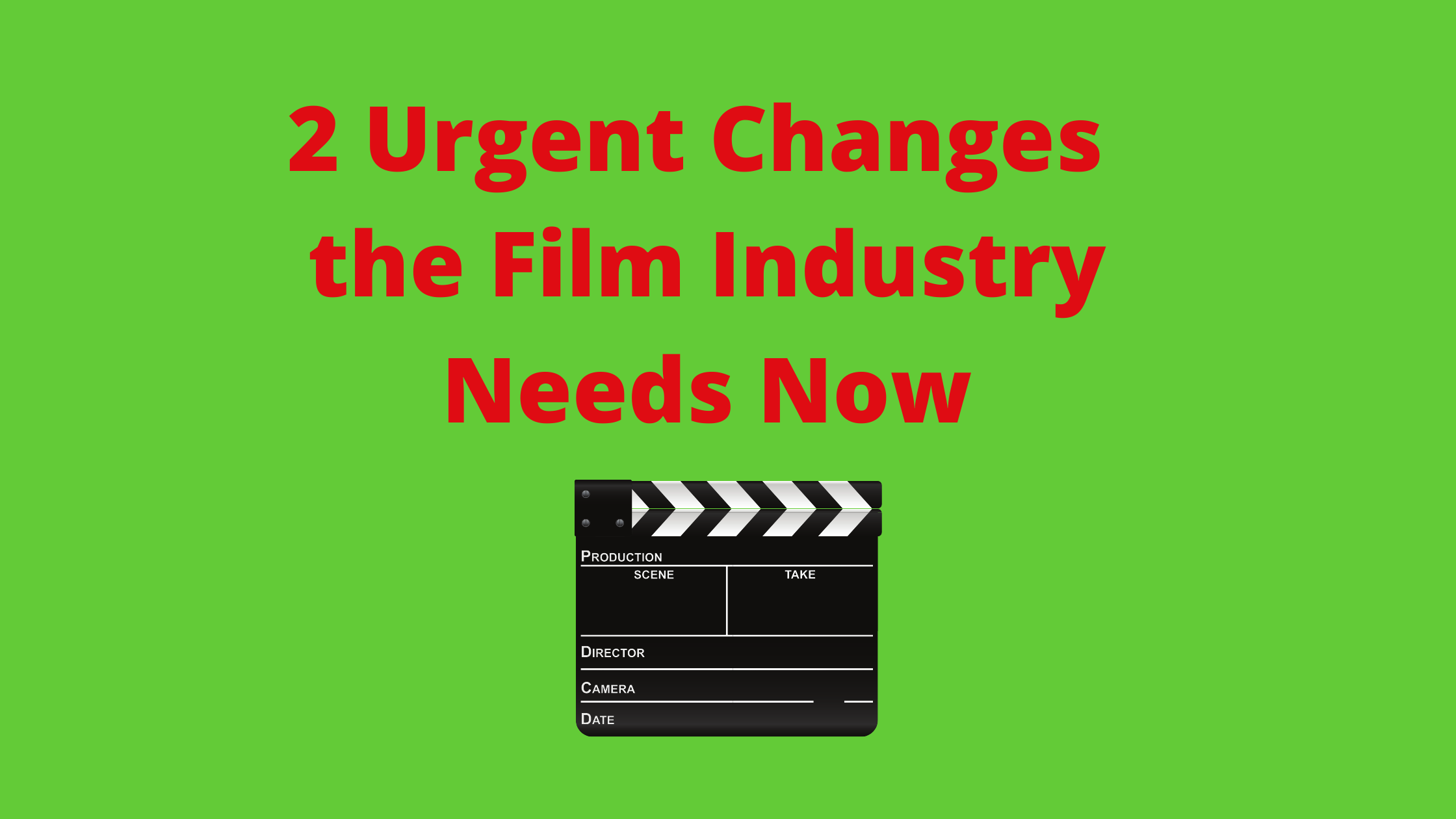2 Urgent Changes the Film Industry Needs Now

Share this
It’s been a difficult few months for the film industry and many of us who work in it. This pandemic isn’t done with us yet, although we’re all more than ready to be done with it. Producers are still trying to figure out how productions can implement the recommended safety guidelines so shows can start up again. Some states, like Arizona, that reopened prematurely have shut down again as the number of COVID-19 cases rise. It remains to be seen if the surprising boom in commercial production that Arizona had in June will continue throughout the summer.
Now that the industry is doing a complete reassessment of the way we work, there are two much needed changes I’d like to see emerge from this tumultuous time. We have the chance to rethink what the industry should be and how it will operate in the future. Many of the industry business practices of the past are not going to work for the future.
Here are 2 major changes that I believe should be made a permanent part of our industry:
- Shorter hours. Anyone who has worked in the film industry for any length of time has had some ridiculously long and unsafe work days. I’ve personally worked several days on set that were longer than 24 hours. I’ve had too many 16 hour days to count. And this wasn’t even on particularly grueling shows. The pandemic has forced productions to think about the health and safety implications of such incredibly long workdays. It shouldn’t take a pandemic for us to understand that people’s immune systems can’t stay strong when they work long hours with little sleep for months at a time. No one is capable of making great decisions after 16 plus hours of high stress work. Then you still have to drive home. People have been killed driving home after working long hours. The issue of overly long workdays in our industry has been bemoaned for decades. This is the ideal time to make some lasting changes. A 10 hour workday is long enough. No show is so wonderful that it’s worth someone’s life.
- Paid sick days. Our industry is notorious for people coming in to work when they’re sick. As we often work in close quarters and our sleep-deprived immune systems are run down, those around us also get sick. In an industry with enormous wealth disparity between those at the top and everyone else, it’s past time for film crews to have paid sick days on every show. The pandemic has highlighted this issue and it should not be forgotten once we’re no longer dealing with COVID-19. As so many people have lost jobs, many 2 income households have now become one income households. The economic recovery will be long and difficult, but no one should be in an even more precarious economic situation because they need to take a few days off from work because they’re ill. Paid sick days should be part of future union contract negotiations.
The issue of our healthcare being tied to our employment is another issue that’s been in the forefront of our industry since all production shut down. Crew members who believed they had months of work lined up to qualify for their health insurance found that they were now jobless. Some of the entertainment industry unions stepped in to help. For example, the DGA approved a 3 month period of premium- free COBRA coverage for members whose active coverage was set to expire at the end of June. However, the overall issue of health care coverage extends far beyond our industry and will have to be dealt with at some point at a government level. What that change will entail is unknown, but having health care tied to employment is not a viable solution, when tens of millions of workers have lost their jobs during the pandemic.
This gut-wrenching time of COVID-19 and massive unemployment will eventually come to an end. What our society and our industry will be like when we emerge from all this is murky at best. But we have the opportunity to make some positive, healthy changes in the way we work in our industry that can improve life for film industry workers for decades to come. We should not let this chance slip away.